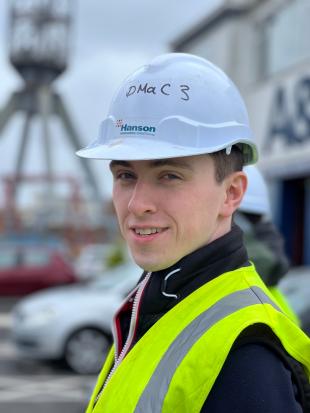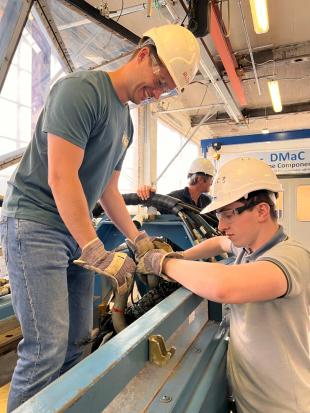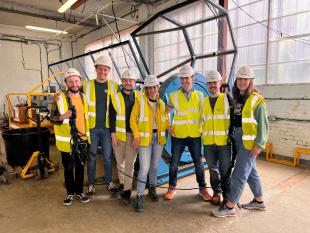Unique problem
Simon has a fairly unique project from an IDCORE perspective. His sponsors are Seiche Marine Acoustic Solutions. He is working with them to create a new sensing system that will help them to further develop their offering into the renewables sector.
During construction of offshore renewables installations, processes like piling and removal of unexploded ordnance create high amplitude acoustic signals which are a threat to marine life. Traditionally, it is the sound pressure levels (SPL) associated with these processes that have been measured, however, for fish and marine invertebrates particle motion in the acoustic field is also important, but it has not been possible to measure this on a commercial basis previously. Effective measurement of these signals in the near field of offshore construction sites will help to mitigate the impact of such operations on the marine environment.
Simon’s project is helping Seiche to develop and deliver these measurement services on a commercial basis. He has designed and developed a prototype measurement device that has undergone tank testing and is about to go into field trials with one of Seiche’s clients.
Challenges
Being a member of the cohort for whom their first year was most affected by COVID, did not make it as easy to become part of the wider IDCORE community and build the relationships within and between cohorts that have proved so important to others on the programme. Joining other cohorts at the University of Edinburgh’s Firbush Outdoor Centre last year helped to start to address that – it was a great experience, an opportunity to talk with others in the same situation and, for Simon, a break from worrying about his project when he had been going through a particularly difficult patch.
IDCORE makes a difference
Simon feels that IDCORE has made him a more well-rounded engineer, building on what he had learnt as an undergraduate in Chemical Engineering at the University of Strathclyde. The exposure to industry, particularly the challenges of working in a small organisation, has been invaluable, as has IDCORE’s approach to training its cohorts. He has learnt a lot from the breadth of study, and the input and discussion have helped him to develop a more open perspective, taking different views into account before finding solutions.
This has all put him in a position to be a useful asset to his sponsoring company, but it does come with a warning - gaining industrial experience is not gift-wrapped or easy, you have to be careful with your choices and to be willing to keep asking questions. It forces you to develop the ability to use your own initiative and to learn what and who to ask. You can learn a lot even when there are problems.
Overall, the experience has been positive, and Simon would still make the same decisions if he were starting out on the IDCORE journey again today.
References
- M Dähne et al 2013 Environ. Res. Lett. 8 025002
- A N Popper & A D Hawkins 2018 J Acoust Soc Am 143, 470–488









